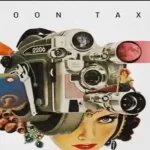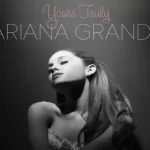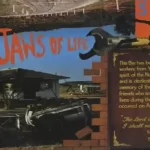France, with its rich cultural heritage and artistic endeavors, has left an indelible mark on the global music scene. The music of France is as diverse as its landscapes, ranging from classical compositions that have captivated hearts for centuries to contemporary genres that resonate with the modern youth.
Classical Elegance: A Legacy of Composers
France’s classical music heritage has produced some of the world’s most renowned composers, leaving an indelible mark on the world of music. Hector Berlioz, a pioneering figure in the early Romantic era, stood out with his innovative compositions. The late 19th century witnessed the rise of Georges Bizet, Jules Massenet, Gabriel Fauré, Maurice Ravel, and Claude Debussy, who not only revitalized French music but also left a profound influence on 20th-century music globally. Bizet’s masterpiece “Carmen” remains an emblem of French opera.
The Modern Resonance: 20th Century and Beyond
As the 20th century dawned, France continued to contribute significantly to the musical landscape. Neo-classical music flourished, with composers like Lili Boulanger, Nadia Boulanger, and Albert Roussel making their mark. The emergence of Les Six, a group of composers around Erik Satie, further enriched the musical repertoire. Olivier Messiaen, Henri Dutilleux, and Pierre Boulez brought innovation and experimentation to the forefront, pushing boundaries and creating unique musical idioms.
Regional Treasures: Folk Music from Various Corners
France’s musical heritage extends beyond the classical and modern genres, encompassing a rich array of regional folk music. Central France, including Auvergne, Limousin, and Morvan, boasts a bagpipe tradition, hurdy-gurdy, and the lively bourrée dance. Instruments like the hurdy-gurdy, a mechanical violin, and the bagpipe, represented by the cabrette and grande cornemuse, reflect the deep musical roots of these regions. Festivals like St. Chartier have played a pivotal role in preserving and revitalizing these traditions.
Soulful Tunes: From Basque Country to Corsica
The Basque Country and Corsica contribute distinct musical flavors to France’s melodic mosaic. The Basque region showcases tabor and pipe ensembles, while Corsica’s polyphonic singing, characterized by male trios, adds a unique touch. Artists like Mixel Etxekopar and Jean Mixel Bedaxagar have preserved Basque traditional music, while Corsican groups like I Muvrini and Canta u Populu Corsu continue to captivate audiences with their harmonious melodies.
French genres of music
- Classical Music: France has a rich tradition of classical music dating back to the medieval era, including the Notre Dame School and later the Baroque and Romantic periods.
- Chanson: A form of lyric-driven French song, often accompanied by simple melodies, known for its poetic and storytelling qualities.
- Opera: French opera, characterized by its lyrical and dramatic qualities, has produced renowned composers like Jean-Baptiste Lully and Georges Bizet.
- Hip-Hop: French hip-hop emerged as a significant genre in the late 20th century, addressing social and political issues through powerful lyrics and rhythms.
- Folk Music: Regional folk music traditions are strong in France, including Breton folk music, Corsican polyphonic singing, and Auvergne’s traditional styles.
- Pop Music: French pop music combines elements of rock and roll and Chanson, characterized by catchy melodies and relatable lyrics.
- Rock Music: French rock music gained prominence in the 1970s with bands like Ange and Magma, showcasing a blend of progressive and experimental styles.
- Electronic Music: France has made significant contributions to electronic music, especially in the realm of house and techno, with artists like Daft Punk and Justice.
- Jazz: France has a thriving jazz scene, known for its influence on the genre, and artists like Django Reinhardt and Stéphane Grappelli have made significant contributions.
- World Music: France’s multicultural society has contributed to a diverse world music scene, blending various ethnic influences into a unique fusion.
- Reggae: French reggae artists have gained international recognition, offering their own interpretations of the Jamaican genre.
- Rap: Distinct from hip-hop, French rap has its own characteristics and prominent artists, often focusing on urban issues and personal narratives.
- Metal: The metal scene in France encompasses various subgenres like heavy metal, black metal, and death metal, with bands like Gojira gaining global recognition.
- Classical Crossover: Combining classical elements with modern styles, artists like Vanessa-Mae and Yann Tiersen have created unique blends of classical and contemporary music.
- Bossa Nova and Latin Influences: French musicians have embraced Latin rhythms, contributing to the world of bossa nova and other Latin-influenced genres.
- Gypsy Jazz: Gypsy jazz, popularized by Django Reinhardt, is a style that fuses elements of swing jazz with traditional Romani music.
- Experimental and Avant-Garde: France has been a hub for experimental and avant-garde music, with composers like Pierre Boulez pushing the boundaries of traditional musical forms.
- Pop Rock: Combining the catchiness of pop with the energy of rock, this genre has produced artists like Indochine and Téléphone.
- Electronic Chanson: A fusion of electronic and traditional Chanson elements, exemplified by artists like Stromae.
- R&B and Soul: French R&B and soul artists have added their unique flair to these genres, often infusing them with cultural influences.
- Gothic Rock: The French Gothic rock scene emerged in the 1980s, characterized by its dark and atmospheric sound.
- Blues: While not originally from France, the blues genre has been embraced by French musicians, leading to a vibrant blues scene.
Conclusion
France’s musical journey is one of diversity and innovation, reflecting the country’s cultural dynamism. From classical compositions that have stood the test of time to contemporary genres that address the challenges of the modern world, French music continues to capture hearts worldwide. The French people’s openness to embracing new styles and traditions has allowed for a musical tapestry that speaks to the soul and connects generations. As the melodies of France continue to echo through time, they remind us of the country’s enduring passion for artistic expression.
References:







